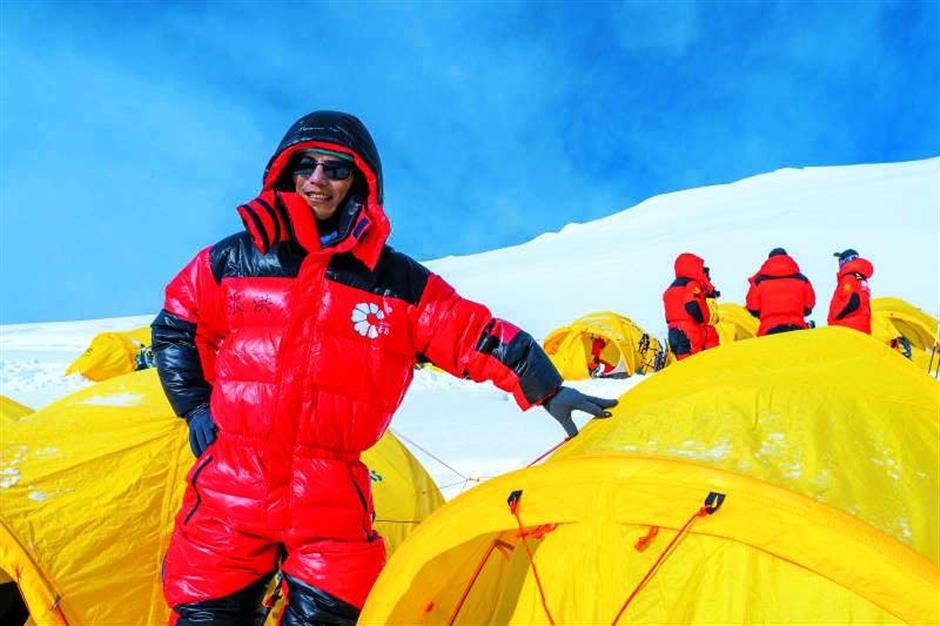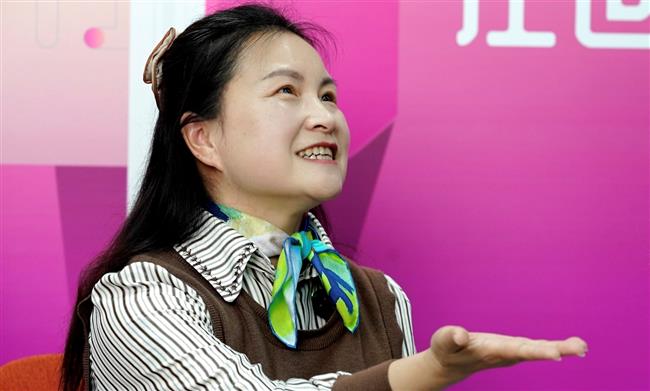Peaks and pages: conquering mountains and connecting people through words
Confession: I don’t read enough. And while that might be a dangerous way to begin an article about the importance of literature, I have to approach you earnestly. Instead of picking up a book, I quickly reach for my phone, mindlessly scroll social media, and dutifully respond to texts or e-mails. I’m not alone. The average American spends 11 hours per day on electronic devices. Everyone is glued to their screens. Global smartphone ownership is over 2.8 billion and social media usage has increased by 50 percent in the last decade. It’s a wonder we get anything done.
What’s more staggering are the social costs of our so-called constant connectivity. The World Health Organization estimates more than 264 million people suffer from depression, and 250 million live with anxiety disorders. We live in a forever-connected world, and paradoxically, we’re more isolated than ever. So, what happened? How did we get here? And, more importantly, how can we make our way back?
At the heart of this crisis is a deep desire for connection and belonging. It’s a need expressed in stories since the beginning of time. From the earliest cave paintings to the latest best-sellers, we have always sought to share our experiences. We have replaced literature with captioned Instagram posts and status updates. This isn’t to blame technology for social amputation. But when adults who spend more than two hours per day on social media are more likely to feel isolated, we must look at it, particularly when the same technology is sold on connectivity. Yes, technology is beneficial. But we cannot make meaning from life within the confounds of a tweet. Storytelling is how we find purpose in a world that’s often dark and confusing.
And what could be darker or more confusing than going blind?
Loss of sight can be a sudden, shocking experience or a gradual decay that slowly cuts people off from the world. I cannot comprehend it. Going blind is to see the light of day slip away into endless nightfall, consuming everything once taken for granted. This is the waking nightmare Liu Fang and Zhang Hong found themselves in. For them, blindness was a deeply disorientating and painful experience that disconnected them from their surroundings, leaving both profoundly isolated and alone.

Emma (right) talks with Liu Fang (center) and Zhang Hong, who have both overcome unimaginable adversity to achieve great things
“I used to have very bright eyes,” Liu tells me. Her eyes are playfully twinkling as she talks. “But then everything got vague, and suddenly I went into complete darkness.”
For Zhang, blindness was a sunset that never rose.
“I went into darkness overnight,” he describes with disarming grace and composure. “The evening before, I could read headlines in the newspaper. When I woke up, I asked my girlfriend why it was still dark. She said it wasn’t, and that’s when I knew.”
Here I find myself in conversation with two of the most inspiring people I’ve ever had the privilege or pleasure to meet. Each has overcome unimaginable adversity to achieve great things where most of us would have become understandably broken and bitter.
Zhang lost sight in 1996 at 21 due to glaucoma, a degenerative condition that had previously afflicted his father and uncle. In the years following, Zhang became suicidal, but his loving and committed wife refused to watch her husband be consumed by despair.
“I love soccer,” he tells me before widely smiling when I tell him I once served David Beckham as a waitress. “My wife would read me sport updates from newspapers to cheer me up. She read me many books that opened all doors. Later I used audiobooks and Braille. Reading inspired me to acquire information and discover the world, including climbing.”
Zhang came across the story of American athlete and adventurer Erik Weihenmayer, the first blind person in the world to conquer Mount Qomolangma, known in the West as Mount Everest. “It was a turning point. If he could do it, why couldn’t I?”
At 43 and without any experience, Zhang began grueling training to achieve his seemingly insurmountable goal. And in 2021, he did, becoming the first blind person from Asia to conquer Mount Everest. An experience he describes as “scary as hell.” Yet he’s determined to continue mountaineering. For Zhang, each climb is not about getting to the top, but about getting home. Because at home — where life happens — more significant challenges await. Climbing, if you like, acts as preparation for the real tests of life.

Zhang Hong became the first blind person from Asia to conquer Mount Everest in 2021.
I asked Zhang if there was a book that encouraged him.
“The Taoist classic, ‘Tao Te Ching,’” he immediately answers. “I read it a lot before and after Qomolangma; it taught me how to objectively look at issues and live in harmony with others.”
I put the same question to Liu, herself an acclaimed author with honors such as National Modern Citizen of the Times.
“For me, there isn’t a single book,” she smiles. “It’s like each grain of rice that nourishes your bones. Every book is part of your being. We learn and grow from all of them.”
The last book Liu read before going blind was “The Smiling, Proud Wanderer” by Jin Yong. Characters have various disabilities and overcome challenges to be masters of martial arts. “Through reading literature like this, I acquired the confidence and courage to go on my journey with books as a guide.”
For Liu, once a teacher who now serves on various boards, including the China Blind Association Literature Committee, reading is more like a limb than a pastime. “Like my hands or feet, books are part of my body I cannot live without. They are essential.”
This primal connection drew Liu to move from education to writing. “I wanted to promote reading and create opportunities for blind people in China.”
Liu has always drawn confidence and determination from reading, a gift she wants to give back. “You’ll find desperation in my stories, but life becomes good. Writing to me is soil; we plant seeds, and beautiful flowers will grow.”

For Liu Fang, reading is more like a limb than a pastime.
The experiences of Liu and Zhang highlight that reading is not just about consuming information or getting lost in an unknown land. Literature allows us to step outside of our experiences and see the world from new perspectives. Books also offer faith when life brings us to our knees.
For Shari Rosen, co-founder of ELG — a company that provides special education, developmental and counseling services, and consulting in Shanghai and across China — that moment came when she sought care in a mental health center. Despite the support of her loving husband and business partner Monte, an extended and severe spell of depression got her there. On arrival, Rosen’s belongings were taken, and replaced by a sack of books. Least to say — and amid group therapy and experiential activities that tested her patience — Rosen read. A lot. She read like she had never read before and, in doing so, began to heal in ways she didn’t expect. One book immediately comes up in conversation, “The Drama of the Gifted Child.”

Shari Rosen
“That book changed my life,” she stresses. “The day I opened it, I figured out why I was who I was, and thus it became the day I began to heal. All the anger and sadness started to ease.”
I asked Rosen to define connection in the context of literature and her healing journey.
“It’s critical. For people who are overcoming trauma, literature can significantly reduce social isolation by providing companionship and empathy through characters and their experiences,” she says.
Rosen was diagnosed with ADHD in her 30s, and her work is centered around supporting people living with various needs. “Literature is a powerful tool to bridge the gap between people with disabilities and the rest of society. Storytelling creates a more inclusive and accepting society.”
I asked Rosen what she makes of Liu and Zhang.
“They are role models,” she says. “People with disabilities will always be stigmatized to some degree. But we must be willing to educate ourselves. For anyone, anything is possible. But nothing is ever easy.”
Preparing to leave, Zhang tells me: “Without literature, we are like the walking dead. It is the soul of a learned life. The difference between us and animals is that we have the words to record and make sense of our history. Literature will forever be significant.”
For Liu, the soul of writing is something technology will never replace. “In China, we talk about writing with good form and spirit. The form is easy to imitate. But you cannot imitate the soul.”
We all know the fog of confusion and sting of isolation. The self-help section of any bookstore is enough to signify that. And one only needs to turn on the television or scroll social media to understand that inclusiveness and acceptance are in short supply. The problem with snippets of experiences and character-limited takes on complicated topics is that there’s little to no place to connect or empathize with others. Aren’t we screwing ourselves over? Missing the collective experiences of people who’ve faced challenges, traveled afar, fallen in love, lived life and faced death. It’s all there in black and white, and yet we think Facebook has the answer.
In his best-selling book “Lost Connections,” Johann Hari writes: “The opposite of addiction is not sobriety. The opposite of addiction is connection.” And in a world hooked on devices, here’s your call to action: put down your phone and pick up a book. For there, between its chapters lies connection, and within its sentences the words you may need to help you heal.
Reach Emma at emma.leaning@shanghaidaily.com or follow her on Facebook (EmmaLeaning) and Twitter (@LeaningEmma).
















